What’s Next? — IGCC Experts Weigh In on the Year Ahead
If 2024 was the year of elections, 2025 will be the year of consequences. Growing uncertainties—from rapid technological, economic, and climatic change; simmering conflicts in Europe, Africa, and the Middle East; and an intensifying ideological struggle between democracies and autocracies—are compounding, marking an era that promises profound political disruption.
What comes next? Here, experts from across the UC system offer their insights on where the world is now—and where it may be heading.
Introduction from the IGCC Director
- Will 2025 Be a Year of Growing Risk? | Tai Ming Cheung, UC San Diego
What’s Next For U.S. Foreign Policy?
- What Will Trump Actually Do? | Eli Berman, UC San Diego
- Continuity or Change in U.S. Foreign Policy? | Michaela Mattes, UC Berkeley
- Amid Palace Intrigue in Washington, Will Beijing Step Up on the World Stage? | Stephan Haggard, UC San Diego
- Is Trump Bluffing on NATO? | Brandon Kinne, UC Davis
What’s Next For Science and Technology?
- How Will Trump vs. Xi Round 2 Define U.S.-China Tech Competition? | Jimmy Goodrich, IGCC Nonresident Fellow
- How Will U.S. and Global Public Health Fare? | George Rutherford, UC San Francisco
- Will Climate Change Worsen Food Insecurity? | Jennifer Burney, UC San Diego
- Will Right-Wing Populists Embrace or Impede Emerging Tech? | Aditya Dasgupta, UC Berkeley
- How Will Rapid Technological Advances Influence Geopolitics? | Juljan Krause, IGCC Postdoctoral Fellow, Washington D.C.
What’s Next For Democracy?
- Can Democracy Withstand Climate Impacts? | Christina Schneider & Emilie Hafner-Burton, UC San Diego
- Will 2025 Be Won by Dictators or Democracy? | Kai Thaler, UC Santa Barbara
- Does Democracy Need Truth to Survive? | Kevin Esterling, UC Riverside
- Can We Restore Americans’ Faith in Elections? | Lauren Prather, UC San Diego
- Will Incumbents Start Winning Again? | Georgia Kernell, UC Los Angeles
- Are Our Newsfeeds Making Us Sadder? | Christopher Ojeda, UC Merced
- Is South Korea’s Crisis a Warning for Democracy? | Anya Stewart, UC Davis
What’s Next For International Migration?
- What Will Happen at the U.S.-Mexico Border? | Cecilia Farfán, IGCC Affiliate
- How Will Diaspora Political Engagement Develop? | Fulya Felicity Turkmen, UC Riverside
What’s Next For International Relations?
- What Will Happen to Europe’s Security Architecture? | Eric Min, UC Los Angeles
- Will International Law Help or Hurt Taiwan? | James Lee, Academia Sinica Taiwan
- Will International Humanitarian Law Survive the 21st Century? | Anna Feuer, UC San Diego
- Is the Balance of Power Among Arms Suppliers Shifting? | Cartland Zhou, UC Los Angeles
- How Will Gulf States Navigate a Changing Middle East? | Rohan Advani, UC Los Angeles
- How Will New Players Affect Stability in Africa and the Middle East? | Wendy Wagner, UC San Diego
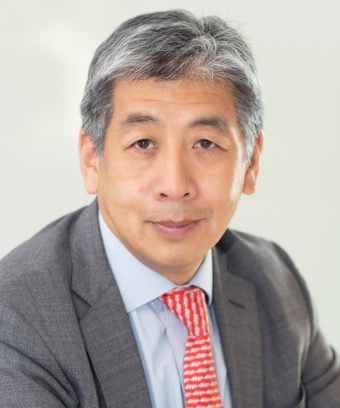
Will 2025 Be a Year of Growing Risk?
As a new year dawns, the overriding concern across the world is the mounting threat of war. The prolonged and escalatory nature of military conflicts in Ukraine and the Middle East, along with deepening U.S.-China great power confrontation, is leading to a growing number of states militarizing and preparing for the worst.
With more countries arming themselves to the teeth, the world looks an increasingly dangerous place. This period in history is being defined by a heightened risk of further conflict, militarization, and growing obstacles to international cooperation.
Militarization is the process by which states prepare to defend their national security. It is carried out by pursuing industrial, normative, technological, and resource-enhancing efforts to build capabilities across the economic, political, social, military, and diplomatic domains.
Militarization was widespread during the 20th century and is now taking root again, especially among major powers. Russia is estimated to spend one third of its state budget on defense. China is accelerating a large-scale defense buildup that is transforming its military into a world power capable of challenging the United States within the next couple of decades. The United States invests far more on defense than any other country, with annual defense expenditures likely to reach $1 trillion within a few years.
Beyond these great powers, most NATO members—although pledging to spend at least 2 percent of their annual gross domestic product (GDP) on defense—have been slow to significantly ramp up their military capabilities following Russia’s full-scale invasion of Ukraine in 2022. But there is now increasing talk among European policymakers of raising defense outlays to levels comparable to the 3–4 percent of GDP spent during the Cold War. The incoming Trump administration is reportedly pushing for a 5-percent goal, significantly more than even the United States currently spends.
Another key dimension of militarization is normative. NATO Secretary General Mark Rutte expressed this clearly in December 2024 when he talked about the need for the alliance to “shift to a wartime mindset” to prevail in a long-term confrontation with Russia. This militarized mentality has already become deeply embedded into Russia’s governing culture, as exemplified by President Vladimir Putin’s response to a question about the lessons learnt from the invasion of Ukraine. He said that the decision to attack Ukraine should have been taken earlier and that Russia should have been better prepared for the conflict.
China is certainly heeding Putin’s insights to militarize better and earlier in its approach to Taiwan. Over the next decade, Beijing aims to gain a decisive advantage in the military balance across the Taiwan Strait to deter U.S. intervention and successfully invade Taiwan if it chooses to do so. What lessons will the United States and its allies learn from the war in Ukraine to ensure that a potentially more calamitous conflict doesn’t occur in the Indo-Pacific?
The second half of the 2020s promises to be even more turbulent than the first half of the decade. That makes it more important than ever that scholars provide insight on how to reduce conflict and facilitate cooperation across the globe. It is in that spirit that the experts of the UC community look ahead to 2025 and what comes next for a world beset by escalating risks.
Tai Ming Cheung is director of the UC Institute on Global Conflict and Cooperation (IGCC) and a professor at the School of Global Policy and Strategy at UC San Diego.
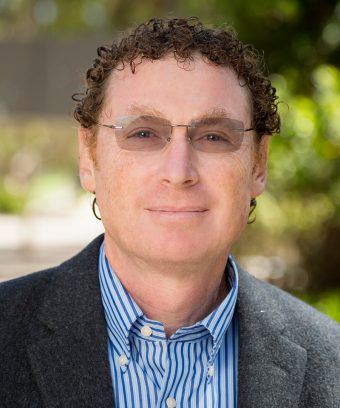
What Will Trump Actually Do?
The return of Donald Trump to the U.S. presidency raises questions on a number of fronts in Washington. While his style is to create uncertainty and focus attention on his own pivotal decisions, some of the major questions are truly pivotal by nature.
The most pressing decisions about conflict abroad will be how the Trump administration approaches the Russia-Ukraine war and the NATO alliance. The Biden administration backed the reinvigoration of NATO and actively supplied Ukraine’s defense. On the campaign trail, Trump said he would end the war on “Day 1” of his presidency. But how will he resolve the conflict—will Ukraine trade territory for peace, or even for NATO membership? Will Trump leave the alliance—as he has threatened to do if allies do not increase their contributions—or weaken it, especially by reducing the U.S. contribution to European defense? A hobbled NATO would undermine Ukraine’s strategic position, effectively rewarding Russian aggression, rather than deterring it.
Another festering dilemma awaits the administration in Gaza. Trump told Israeli Prime Minister Benjamin Netanyahu to “do what you have to do” to end the war. But a carte blanche to Israel endangers Trump’s priority of expanding the Abraham Accords, a series of normalization treaties between Israel and Arab nations that began under his first administration. The diplomatic fallout from that war has demonstrated that the administration cannot back both the Netanyahu government and a regional peace agreement with Saudi Arabia to complete the Abraham Accords. Which will Trump choose?
Most critically, Trump’s pledges to pare back federal spending and U.S. commitments abroad—as well as his transactional approach to foreign policy more generally—raise questions about Taiwan and how the United States will pursue competition with China. Will the second Trump administration shift away from deterring China with a strong defense of Taiwan, toward a less expensive, less aggressive approach? And will Washington also abandon its ongoing and pricey efforts—through programs such as the CHIPS and Science Act—to maintain a clear advantage over China in critical technologies such as semiconductors?
The democratic-versus-autocratic nature of U.S. global engagement may also shift, as the world’s most powerful democracy will be led by an individual with authoritarian tendencies. Trump has threatened to use the Department of Justice against political rivals and soften its prosecution of right-wing extremists. He said he’ll be a dictator—on “day 1,” at least. Even if that populist rhetoric is mostly showmanship in a country with strong legal guardrails on presidential power, it may well inspire authoritarians in countries with weaker institutions. After a year of voters punishing incumbents in the Global North, the success of right-wing populists in the German election in February will be instructive. Moreover, if the press, judiciary, and individual freedoms come under pressure in the United States, will the Chinese governance model—no independent judiciary, weak property and human rights, and tightly controlled press and social media—gain adherents in Asia, Africa, and South America? October’s Nobel prize in economics spoke to the contribution of liberal institutions to economic growth, indicating the long-run cost of dallying with democratic decline.
Most immediately, two looming issues threaten a surprisingly healthy U.S. economy. The promised increase in deportations of undocumented residents would raise prices for labor-intensive goods and services such as construction, manufacturing, and health care. Second, increased tariffs would raise the prices of imports and inevitably reduce exports through countervailing tariff increases from U.S. trading partners. Economists learn in graduate school how trade wars set off global recessions. A stalled U.S. economy could still be boosted by Trump’s promised debt-financed tax cut, but that would reignite inflation, both domestically and abroad.
Time will tell if a president promising to end military conflicts abroad will do so by compromising deterrence, to our long-run peril. A similarly shortsighted logic, if applied to the economics of immigration and trade, could stall out the domestic economy, dragging down trading partners and allies.
Eli Berman is IGCC research director for international security studies and professor of economics at UC San Diego.

Continuity or Change in U.S. Foreign Policy?
Will the Trump administration make a drastic break in foreign policy? Many think so. But in my research with Ashley Leeds of Rice University, we found that democracies’ foreign policies tend to be quite stable compared to those of non-democracies, even when new leaders supported by different domestic coalitions come to office. Indeed, during his first term, many of President Trump’s foreign policies maintained continuity with President Obama’s, and President Biden also often followed in Trump’s footsteps.
The question is whether President Trump’s second term will continue this pattern. Importantly, while changes in international relations may be driven by the president, they can also result from other countries’ adjustments to the new U.S. administration.
One area to watch is U.S. alliances, especially NATO. During his first term, President Trump did not follow through on his threat to leave the alliance. A full exit from NATO remains unlikely, given the roadblocks Congress has installed. However, even if NATO persists on paper, President Trump might hollow out the alliance by withdrawing U.S. forces from Europe. Indeed, the president doesn’t even have to do anything that drastic—just publicly airing his doubts about whether the United States will honor its security commitments undermines NATO.
This is dangerous, as research suggests that aggressors challenge unreliable alliances. Europe is lucky that Russia, weakened by the Ukraine war, is in no position to attack and, by the time Russia recovers, a new U.S. president might have restored the U.S. commitment to NATO. Still, American credibility would undoubtedly be damaged in the long term and U.S. allies might look for new ways to provide security, most likely by building independent capabilities. This would inevitably lead to a decline of U.S. sway over its allies, as the historical bargain—security for influence—unravels.
Another area to watch is U.S. relations with adversaries, especially Iran. 2024 was a bad year for Iran, with its “Axis of Resistance” falling apart piece by piece. The United States might take advantage of Iran’s vulnerability and push for a new nuclear deal. President Trump is in a strong position to negotiate such a deal, having established himself as tough on Iran during his first term. Iran might be more willing to make concessions fearing U.S. or Israeli aggression, and research suggests that hawks are advantaged at rapprochement with an adversary. A nuclear deal with Iran would reflect a change in current U.S. foreign policy but a return to President Obama’s hallmark international achievement.
Michaela Mattes is a professor of political science at UC Berkeley.
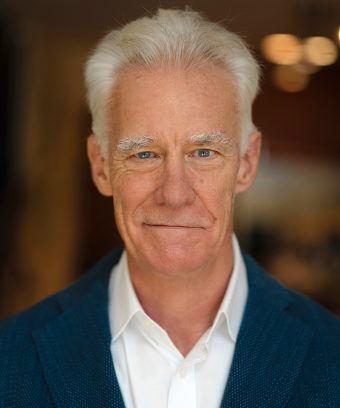
Amid Palace Intrigue in Washington, Will Beijing Step Up on the World Stage?
President Trump’s antipathy to international institutions is well known, and has been given an intellectual rationale by former officials such as John Bolton, whose “new sovereigntist” arguments rail against the World Trade Organization, the European Union, and the United Nations, among others. Yale law professor Oona Hathaway has documented Trump’s first-term record of withdrawing from international agreements: from non-binding arrangements like the Iran nuclear deal, executive agreements such as the Paris climate accords, and actual treaties such as the Intermediate-Range Nuclear Forces Treaty. In some cases, such as threatened withdrawal from the U.S.-Korea Free Trade Agreement, the rationale for leaving was openly tactical: to generate leverage for renegotiation. In others, the motives seem grounded in a deeper animosity to international law.
Yet a close read of recent memoirs of the Trump administration, including by Mike Pompeo and H.R. McMaster, suggests a more nuanced picture of the infighting—and backstabbing—around these issues. The Pompeo memoir includes a whole chapter savaging multilateral institutions and leans decidedly toward Bolton’s sovereignty arguments. But McMaster repeatedly plead with the president not to throw away the advantages of international institutions, and Bolton, Pompeo, and McMaster were all alarmed by Trump’s casual approach to NATO commitments.
In 2025, I will be watching two things. First, how will these fights between hardline sovereigntists and more traditional conservative internationalists play out? Trump is preoccupied with burden sharing. But steering international organizations is certainly the most efficient way to deliver on burden-sharing promises.
Second—and more worrying still—if the United States abandons the multilateral stage, how will the emerging coalition of illiberal states exploit the opportunity? As Rush Doshi argued in The Long Game, Chinese analysts—and probably Chinese leadership—couldn’t believe that the first Trump administration would so readily abandon institutions which the United States itself had built. Xi Jinping quickly stepped in with his own global governance models; needless to say, these hardly comported with American interests. I’ll be watching how illiberal regimes collaborate to undermine global norms—an issue at the heart of IGCC’s Future of Democracy initiative and project on illiberal regimes and global governance.
Stephan Haggard is distinguished research professor at the UC San Diego School of Global Policy and Strategy and research director for democracy and global governance at IGCC.

Is Trump Bluffing on NATO?
A key question confronting scholars in 2025 is whether the United States will maintain its 75-year commitment to NATO or continue down the lonely road to isolationism.
Those who believe that the United States will remain in NATO see President Trump’s threats to withdraw as a bargaining strategy to get other countries to increase their spending on defense. Although some countries, such as Poland, spend more on defense as a share of GDP than the United States, in terms of raw dollars, U.S. spending dwarfs that of its NATO partners. For this reason, every presidential administration from George W. Bush to Joe Biden has encouraged NATO members to increase defense spending.
Those who are more pessimistic about the U.S. commitment to NATO reply that Trump’s fixation on defense spending is a disingenuous cover for his strong aversion to security cooperation. Since the early 1990s, the United States has increasingly relied on a complex patchwork of bilateral cooperation agreements to coordinate routine defense activities with partners, such as joint military exercises, officer trainings, exchanges of classified information, defense-related research and development, and arms trade. Under the Obama administration, the United States signed dozens of these agreements each year. But the first Trump administration largely ignored them. The president-elect may be using budgetary issues to justify disregarding NATO as he has other defense agreements.
Because defense cooperation is a powerful means of extending global influence and protecting U.S. interests, going it alone would be a mistake. Cooperation sometimes has immediate tangible benefits; when NATO members increase their defense spending, for example, U.S. defense firms sell more weapons. But cooperation also yields benefits that are less immediate—and far more important. Defense agreements provide resources to help allies eradicate terrorist safe havens and a legal framework for the counterterror campaigns that foil terrorist plots. An active network of defense partnerships ensures continued access to geostrategic resources—like shipping lanes, mineral deposits, and hydrocarbons—and helps provide stable export and investment markets for U.S. firms. If geopolitical competition between the United States and its adversaries intensifies, a global network of defense partnerships will prove invaluable in militarized confrontations.
It is unclear whether threats to withdraw from the world’s most formidable defense pact are a Nixonian “madman” strategy to encourage greater burden sharing. If they are, the United States may benefit from a stronger network of partners committed to true collective defense. But if not, the United States risks going down a dangerous path contrary to its own interests. Only time will tell which road the incoming administration decides to follow.
Brandon Kinne is an associate professor of political science at UC Davis.

How Will Trump vs. Xi Round 2 Define U.S.-China Tech Competition?
2024 has been a pivotal year in the U.S.-China contest for technological leadership, marked by escalating tensions and transformative policy changes. In 2025, several key developments warrant close attention.
First, the trajectory of U.S.-China competition under the new Trump administration will continue to shape global technology ecosystems and industrial supply chains. Under President Trump’s ardent economic nationalist agenda, Washington is likely to intensify export controls, investment restrictions, and industrial policy initiatives like the CHIPS and Science Act, all of which have strong bipartisan support. In response to U.S. measures to stall China’s technological advance, Beijing will continue adapting its strategies to reduce reliance on foreign technologies.
China’s efforts to build a fortress economy resistant to external shocks will also be critical to monitor. These efforts include securing critical inputs such as semiconductors, energy, and food stocks, while bolstering domestic innovation—reflecting China’s broader strategy to navigate the growing geopolitical and economic pressures reshaping global tech competition.
Finally, China’s pursuit of global leadership in emerging scientific fields—such as fusion energy, artificial intelligence, robotics, and next-generation semiconductors—underscores its ambition to shape the frontier of global science and technology. Large investments in research and development, coupled with long-term national strategies, are likely to drive breakthroughs with far-reaching implications. Understanding how Beijing fosters collaboration among Chinese universities, research labs, and enterprises—and how it attracts global talent to enhance its innovation ecosystem—will be essential to assess its progress in claiming scientific primacy.
At a time of intensifying U.S.-China competition, scholarly research helps chart pathways for informed policy, international collaboration, and the protection of shared values. In 2025, that mission could not be more critical.
Jimmy Goodrich is an IGCC nonresident fellow. The views expressed by the author are his own and do not reflect those of any organization with which he is affiliated.
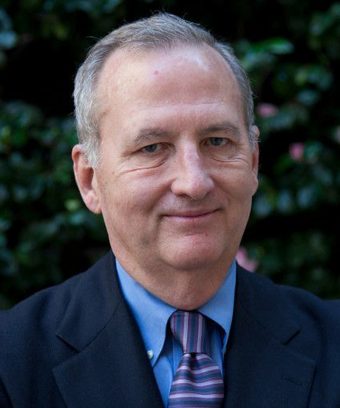
How Will U.S. and Global Public Health Fare?
The impending return of President Trump to the White House has cast uncertainty over the nation’s scientific research, health care finance, and public health functions. The new administration poses risks to U.S. leadership in global health because of deep proposed budget cuts and appointments that seem to signal a willingness to curtail the nation’s public health and biomedical research infrastructure.
The strong possibility that Robert F. Kennedy, Jr., a noted vaccine skeptic, will be confirmed as secretary of health and human services is causing anxiety about childhood vaccination programs. While most vaccine requirements are state mandates, at least half of the funding for vaccines comes from the federal government. Redirecting or cutting funds and adding vaccine-skeptical members to the Advisory Committee on Immunization Practices would potentially slow vaccine delivery and the approval of new vaccination recommendations—or even roll back previous recommendations or approvals, as is being proposed for the polio vaccine.
The effects would be felt not only in the United States but around the globe, where U.S. leadership—if it wanes—will endanger decades of progress in reducing childhood mortality from vaccine-preventable disease. The latest data on measles elimination are far from encouraging.
With their large research budgets, the National Institutes of Health and sister agencies could face cuts. This would mean fewer new grant opportunities, fewer new scientists trained, and even the cessation of ongoing work from currently funded projects.
The other potential casualty is the Centers for Disease Control and Prevention (CDC), which stands to lose all of its non-communicable disease control infrastructure or have its funding drastically reduced. Environmental health programs dealing with problems like the effects of industrial pollution and climate change, and the National Center for Injury Prevention and Control’s violence prevention programs—both of which have run afoul of conservative legislators in the past—may also be targeted.
A personal concern for me is the Presidential Emergency Plan for AIDS Relief (PEPFAR), through which the Department of State currently provides 20.5 million people living with HIV infection with antiretroviral therapy, mainly in Africa. This program is only authorized through early 2025. If it is defunded—and local governments, other donor nations, or multilateral initiatives like the Global Fund cannot pick up the slack—we run the risk of widespread antiretroviral resistance and multidrug-resistant HIV. This would not only reverse more than two decades of progress since President George W. Bush inaugurated PEPFAR in 2003—it could create a far worse problem.
Finally, treaty negotiations around pandemic preparedness and response may well grind to a halt if the United States withdraws again from the World Health Organization. If the major industrialized countries—especially China—cannot come to an understanding on surveillance for and response to new or old organisms with pandemic potential, we will miss a real opportunity to make the world safer.
This all depends on who is appointed to what post, what the funding levels are, and how deep efforts to cut the federal scientific workforce go. Will cuts include research on biological countermeasures conducted by the U.S. Army? Will the Veterans Health Administration’s research portfolio be left intact? Much remains to be seen. The first Reagan administration, which created real shocks at CDC, may be a foretaste of what’s to come.
The risk is that the United States’ preeminent role in global public health will lessen at a time—following a devastating pandemic and amid the current spread of the similarly virulent avian influenza virus—when the world needs that leadership the most.
Dr. George Rutherford is the former director of the Institute for Global Health and a professor emeritus in the Department of Epidemiology and Biostatistics at the UC San Francisco School of Medicine. He is also professor emeritus of pediatrics and of family and community medicine, and adjunct professor of epidemiology and health administration at the UC Berkeley School of Public Health.

Will Climate Change Worsen Food Insecurity?
The past several years have seen a reversal in global progress against hunger. Twenty-plus years of decline in the number of global hungry were followed by a decade of slowing achievement and stagnation. In the past three years, that curve has now entirely turned around. The number of people without enough food to eat has increased each day since the COVID-19 pandemic.
This disturbing trend has emerged while climate change is making it harder to grow food in most places on earth. This is due to the direct effects of steadily increasing temperatures—over 2 degrees Celsius over land—as well as the extreme variation in rainfall that are the direct physical consequence of a warmer atmosphere. For example, from June–November 2024—the main rice-growing season in the Philippines—the country was hit by nine very strong or violent typhoons, including a string of five consecutive storms in November. These caused billions of dollars in overall damages, and $131 million in crop damages alone, forcing the government to procure rice on the global market to buffer the domestic production shortage.
While imports have been available to the Philippines and prices remain stable, we know that the world food system can only absorb so much excess demand in any given moment—after all, crops take months to grow, and must be produced during the appropriate time of year. Nevertheless, recent research has shown that compound and cascading shocks—like the Philippines’ typhoons hitting multiple major production regions in the same season—are in fact more likely on a warming planet. This could have dramatic impacts on global markets and hunger, especially among the world’s poorest, who spend a majority of their incomes on food and are the first to go without when prices rise due to scarcity.
Of course, climate change isn’t the only driver of food insecurity. Conflict and economic downturns also threaten to exacerbate global hunger. I’ll be watching to see how countries with different natural endowments and security situations are thinking about their own food supplies, and whether they make decisions to enact policies to build resilience or not. Researchers have a critical role to play from crop research to systems-level studies as our planet navigates uncharted territory.
Jennifer Burney is professor and Marshall Saunders chancellor’s endowed chair in global climate policy and research at the UC San Diego School of Global Policy and Strategy and a member of IGCC’s working group on climate and security.
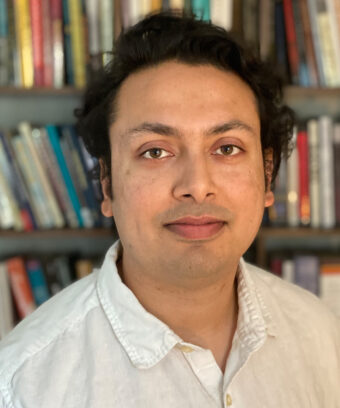
Will Right-Wing Populists Embrace or Impede Emerging Tech?
As someone who works on both India and the United States, 2024 was a momentous year, featuring general elections in both countries. In India, Prime Minister Narendra Modi’s right-wing Bharatiya Janata Party (BJP) was returned to power, although it lost its parliamentary majority. In the United States, the Republican Party won control of the presidency and both houses of Congress.
What I’ll be watching most closely in 2025 is how right-wing populist leaders in the world’s two largest democracies reshape their domestic political economies. There are many similarities: both Modi and President Donald Trump are highly charismatic nationalists brought to power on the basis of both pro-business and xenophobic appeals. These forged an unusual but effective coalition of super-rich and working-class supporters.
I’m interested in how these leaders manage the inherent tensions within their coalitions in a context of rapid technological change—notably the increasing spread of artificial intelligence. In both India and the United States, technological change threatens to accelerate existing trends toward the extreme concentration of wealth while displacing workers through automation, especially in the services sector.
As populists, will Trump and Modi take any steps to moderate these impacts? Or will they continue to shift voter anger toward out-groups while delivering policies that benefit the wealthiest in society? Much is at stake, as these leaders will use their power to set the institutional and policy rules of the game at a point in history when major technological changes will profoundly shape the future of mankind.
I suspect that in the future we will look back at the coming decade as a critical juncture—a moment when key actors, events, and policies determined future trajectories of economic and political development across a range of countries. It’s critical that we get policies and institutions right at this stage.
Ideas matter—at least I hope. Research into things like democratic backsliding, technological change, inequality, and political polarization are all important to shape decision-making and public debate at this critical time.
Aditya Dasgupta is an assistant professor of political science at UC Merced.

How Will Rapid Technological Advances Influence Geopolitics?
It’s been a busy year for researchers like myself who study technology through the lens of great power rivalry. In 2024, the global technological landscape witnessed significant developments that further intensified the strategic competition between the United States and China. In late 2024, the U.S. Treasury Department implemented restrictions on American investments in Chinese technologies—including artificial intelligence (AI), semiconductors, and quantum computing—to curb China’s military advancements. In response, China initiated a competition investigation into Nvidia, a leading American chipmaker, reflecting escalating tensions over semiconductors. Meanwhile, Google announced a breakthrough in quantum computing with its Willow chip, capable of solving some problems exponentially faster than traditional supercomputers, underscoring the rapid technological advancements defining this field. And the list goes on.
Typically, advanced technologies and their effects are discussed separately and in parallel. Not enough attention is given to the ways in which these technologies complement, compete, or intersect with one another. The complex interplay between different technologies deserves closer scrutiny from academics—and would enable more insightful guidance for policymakers and practitioners. For instance, as I have outlined elsewhere, the unforeseen growth of generative AI has made it much harder to demonstrate a genuine quantum advantage over the technology.
As 2025 begins, I will be taking a closer look at the integration of quantum technologies and AI, particularly how the United States and China leverage these advancements to enhance their strategic capabilities. The convergence of quantum computing and AI has the potential to significantly impact sectors such as cybersecurity, communications, and military operations, potentially redefining the global balance of power. I will also be watching the efforts of both nations to establish global standards and norms for these emerging technologies—efforts which are deeply political, influencing which values and governance models will shape the future technological order.
Juljan Krause is a postdoctoral fellow in technology and international security at IGCC.

Can Democracy Withstand Climate Impacts?
In 2025, we’ll be watching how climate-induced extreme weather events disrupt democratic resilience across the world. Climate shocks—such as hurricanes, floods, droughts, and wildfires—are becoming more frequent and severe, testing the ability of governments to address growing economic, social, and political challenges.
These events often exacerbate inequality and overwhelm institutional capacities. Democracies are particularly vulnerable because they rely on public trust, equitable governance, and the ability to mobilize resources efficiently. As climate shocks continue to unfold, how democracies adapt and manage these crises will have far-reaching implications for governance and stability.
Globally, climate shocks are already reshaping voter behavior, eroding trust in institutions and increasing political polarization. Research shows that when governments fail to manage disasters effectively, they often lose support from citizens, fueling voter shifts toward anti-system or populist parties. This dynamic is not confined to lower-income nations—it is increasingly evident in affluent democracies as well.
For example, recent hurricanes in the United States caused significant damage, exposing the limitations of state and federal disaster responses. In Florida, the aftermath of Hurricane Ian in September 2022 brought renewed scrutiny to how disaster aid was distributed and whether relief efforts disproportionately favored certain groups or regions. These controversies likely influenced voter attitudes during that year’s midterm elections, as candidates on both sides leveraged disaster management as a political issue. When citizens perceive inequities in disaster response or insufficient action to address the root causes of climate change, their dissatisfaction can lead to decreased trust in democratic systems and the rise of more extreme political movements.
Our work focuses on understanding these dynamics and their implications for democracy. Engaged scholarship is critical in bridging the gap between research and actionable policy solutions. Democracies around the world, including the United States, face a dual challenge: addressing the immediate crises posed by climate shocks while strengthening institutions to build long-term resilience. Scholars can play a vital role in identifying strategies that improve disaster preparedness, enhance state capacity, and rebuild public trust.
As climate shocks intensify, the stakes for democracies worldwide could not be higher. By working closely with policymakers, practitioners, and the public, scholars can help democracies navigate these challenges, ensuring that they adapt effectively while preserving their core values. The ability of democracies to respond to climate crises will define not only their survival but also their legitimacy in the eyes of the people they serve.
Christina Schneider and Emilie M. Hafner-Burton are co-directors of IGCC’s Future of Democracy initiative and professors of political science at UC San Diego.
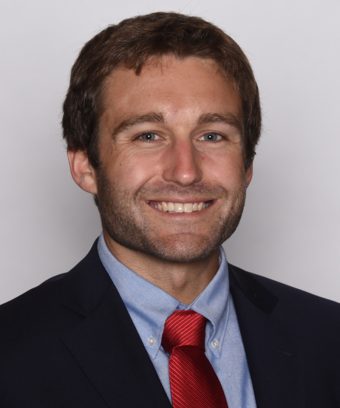
Will 2025 Be Won by Dictators or Democracy?
Throughout 2024, it was difficult to find hope for democratic change. Russian President Vladimir Putin remains in power and his devastating war on Ukraine continues. Myanmar’s military junta continues its indiscriminate attacks on civilians to retain control. Israeli Prime Minister Benjamin Netanyahu has remained in office despite corruption charges, moves to suppress dissent, and his government’s continued war on Palestinians in Gaza and repression in the West Bank. Despite Venezuela holding elections heavily tilted in favor of President Nicolás Maduro, observers concluded that Maduro lost; yet he clung to power anyway as pro-government forces attack, imprison, or force the opposition into exile. Maduro’s ally, Nicaraguan President Daniel Ortega, marked six-and-a-half years since violently suppressing pro-democracy protests by officially making his wife, Vice President Rosario Murillo, the “co-president” to cement dynastic succession.
The end of 2024, however, brought glimmers of hope. After 58 years in power, Botswana’s ruling Democratic Party accepted that it had lost elections and is peacefully handing over power to the opposition. While, at the time of this publication, he has yet to leave office, mass protests and concerted legislative efforts forced South Korean President Yoon Suk-yeol to abandon his attempt to seize power from the National Assembly by declaring martial law, leading to Yoon’s impeachment. Following an election the opposition claims to have won, protesters in Mozambique are posing the biggest challenge yet to the ruling Frelimo party’s 50 years in power. El Salvador has seen some of the largest protests yet against President Nayib Bukele, who has tackled the country’s gangs but trampled civil liberties in the process, and has failed to stabilize the economy. Most surprisingly, after several years of apparent stabilization, Syria’s regime collapsed within days of a new rebel offensive, with President Bashar al-Assad fleeing the country and ending a 53-year dynasty.
Democracy will continue facing strong headwinds in 2025. The openness of democratic systems can be exploited by anti-democratic actors. Few places will experience the sudden regime change we saw in Syria. As South Korea shows, though, it remains possible to fight back against democratic erosion. Even the most seemingly durable authoritarian regimes have frailties that open up possibilities to restore democracy where it appears extinguished. Whether in government, academia, or civil society, supporters of democracy must continue to find ways to defend democracy’s vulnerabilities and turn authoritarian regimes’ weaknesses against them.
Kai M. Thaler is an assistant professor of global studies at UC Santa Barbara and a member of IGCC’s Steering Committee.
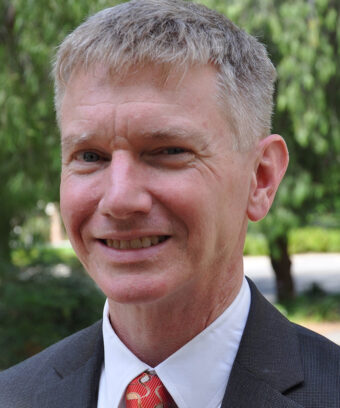
Does Democracy Need Truth to Survive?
Does democracy need truth to survive? We may find out in the years to come. Political theorists have argued that democracy can be justified only when the public can distinguish truth from falsehood. But with the rise of misinformation, this is becoming less certain. Whether we can maintain a capacity for recognizing truth going forward is an existential question of modern politics.
This question is more relevant than ever because at a fundamental level, the incoming Trump administration seems to be antagonistic toward truth. Politicians have always stretched the truth, and always will—but there is a qualitative difference between politicians who lie and those that claim to have “alternative facts.” Now, the second Trump administration is poised again to use misinformation to advance its agenda.
This strategic use of misinformation is most apparent among Trump’s appointees. For example, Tulsi Gabbard, the nominee for director of national intelligence, repeats Russian propaganda regarding Ukraine and Syria, like in 2022 when she agreed with the falsehood that Ukraine is hosting U.S.-funded bioweapons labs, a claim Moscow fabricated to justify its invasion. Robert F. Kennedy, Jr., nominated to lead the Department of Health and Human Services, adheres to conspiracy theories linking childhood vaccines to autism.
While it’s not possible to discern their motivations for adhering to falsehoods, it is possible to recognize the administration’s strategy to create a fog of misinformation surrounding Trump’s selections for leadership positions. If the executive branch itself is unmoored from a common truth, it’s not clear that it will remain moored to common democratic norms.
In a well-functioning democracy, the public plays a critical role in encouraging truthfulness among government officials by punishing untruthful politicians at the ballot box. But it is becoming harder for the public to tell fact from fiction.
Silicon Valley leaders have seemingly embraced the new administration’s post-truth ethos. Social media companies have largely reduced efforts to control misinformation on their platforms, most notably when Elon Musk disbanded Twitter’s trust and safety team shortly after he purchased the platform, now known as X. Indeed, both Facebook and X have restored Trump’s personal accounts after “permanent” bans following the January 6 insurrection, a sign that they wish to play nice with the administration and are unlikely to push back on its falsehoods.
With the rise of generative artificial intelligence (AI), the possibility of scaling weaponized and deepfake misinformation looms large. It’s not clear that Silicon Valley has much of a plan to ensure that the new technology is safe for democracy—in the United States or elsewhere. While countries such as Brazil, Canada, and India are currently developing regulatory frameworks to ensure the language models that power AI are fair and transparent, and the outgoing Biden administration has developed a Blueprint for an AI Bill of Rights [the page has since been removed from the White House website, but is available here via the Internet Archive], federal regulations do not seem imminent.
That said, democratic theorists have argued that people’s capacity to tell truth from falsehood is innate and hardwired into our cognition. And if so, it’s possible that these challenges can be overcome—making 2025 a year of adaptation rather than crisis.
Kevin Esterling is a professor of public policy and political science and the director of the Laboratory for Technology, Communication and Democracy (TeCD-Lab) at UC Riverside.

Can We Restore Americans' Faith in Elections?
In 2024, the U.S. electoral system emerged from a years-long crisis of confidence to achieve a resurgence of faith in elections. Work that I and others have done around the 2024 election finds that trust in elections has rebounded among Republican voters. While most Republicans distrusted the 2020 presidential and 2022 midterm elections, the vast majority now trust the result of the 2024 election. Democrats, on the other hand, have not lost trust despite a decisive win by the opposing side. This may be because Democrats started from a much stronger base of high electoral confidence and party leaders maintained their position that American elections are free and fair even after the results became known.
Does the fact that both Republican and Democratic voters now express high levels of trust in American elections mean that the crisis of confidence is over? Not quite. Research shows that winners frequently have increased confidence in elections in the immediate aftermath of victory. Whether that confidence persists across future cycles of wins and losses, especially for Republican voters, remains to be seen. But we may have a window of opportunity to buttress confidence in elections in 2025 and beyond.
Ahead of the 2024 election, officials created new ways to reach voters and improve confidence in the system. From producing video tours of election facilities, to hosting police-style ride-alongs with election officials picking up ballots from drop boxes, there was a lot of innovation ahead of the vote. I expect this to continue and perhaps become even more effective as Republican voters open themselves to messaging about the accuracy and integrity of American elections. Democratic voters, who may have some post-election doubts—though not as extreme as Republicans after 2020—will also benefit from these outreach strategies. While these efforts may not seem necessary amid surveys showing renewed electoral confidence, this is precisely the time to capitalize on an electorate now open to this messaging.
Let’s seize the opportunity in 2025 to solidify trust in elections for the long haul.
Lauren Prather is an associate professor of political science at the UC San Diego School of Global Policy and Strategy.

Will Incumbents Start Winning Again?
In 2024, incumbent governments suffered stinging rebukes from voters around the world. In over 80 percent of elections, the incumbent party lost seats—and usually lost control of the government entirely. These transfers of power occurred not only in countries with frequent alterations in party control, like the United States, but also in places where ruling parties have governed for decades, such as Japan, Senegal, and South Africa.
In 2025, I’m watching for the consequences of these changes in government—and whether this year incumbents start winning again.
It’s rare to see these election patterns occur across continents simultaneously, and it will be important to examine the origins and implications of such massive electoral turnover. The most likely explanation is public anger over the economic fallout from COVID-19. Amid a slow recovery following the multiyear pandemic, many countries experienced recessions and soaring inflation. Now that power has changed hands, how will new, often anti-establishment parties manage the economy and try to restore price stability and steady growth?
But other factors may also be at play. Voters in democracies around the world are keenly aware of wars in Ukraine and Gaza, with many seeing the outcomes as crucial to their own national interests. In the case of Ukraine, economic disruptions related to the war, including higher energy and food prices, played into voters’ dissatisfaction and bolstered pushes among right-wing parties to strike deals with Russia to resume gas imports. The war in Gaza made support for Israel a growing tension both among and within political parties around the word, and incumbent governments found it challenging to navigate a diplomatic path.
In addition, changes in news consumption due to the proliferation of social media have fueled misinformation, particularly among far-right parties’ supporters. Insurgents were buoyed by rising concerns over immigration, and nationalist parties in Austria, France, Germany and the Netherlands saw major victories.
In Germany, February elections will reveal whether the far-right Alternative for Germany (AfD) succeeds in changing the government’s priorities on migration policy should the center-right Christian Democrats (CDU) win and succeed the ruling center-left Social Democrats (SPD). In France, after the most recent government lost a vote of confidence after only three months in office, the parties are negotiating a potential coalition government—a practice almost unheard of in the country. Summer elections inflicted major losses for the ruling centrists and produced a wave of support for the far left and far right. The country faces an unprecedented tie among the three major party blocs.
Did 2024 elevate a new political establishment—or did it inaugurate a new era of frequent changes in government? In 2025, I’ll be looking to see if voters reject their newly appointed governments as quickly as they rallied behind them.
Georgia Kernell is an associate professor at UC Los Angeles.
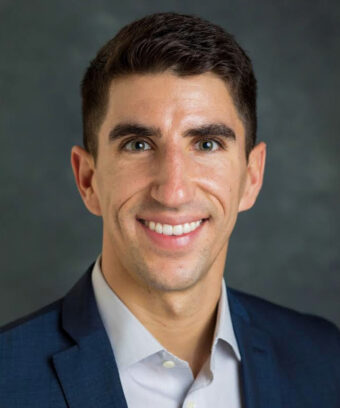
Are Our Newsfeeds Making Us Sadder?
I will be watching how politics affects the mental health of people around the world. In my forthcoming book, The Sad Citizen, which focuses on political polarization in Western democracies, I argue that politics is depressing when it creates a sense of irrevocable loss, and that these feelings decrease political participation. Moving forward, I want to turn my attention to the impact of political news on psychological well-being. Better understanding how the news affects our mental health could be critical for strengthening democracy at home and abroad.
The world is undergoing numerous connected changes, including growing income inequality, emerging technologies, increasing political conflict, population growth, and a deteriorating climate. Today’s media landscape makes it impossible to ignore these issues, whether on the television, in the newspaper, or on social media. For better or worse, information about the world’s problems and the political responses to them—or lack thereof—now permeates everyday life.
How does living in a world saturated with political news influence our psychological well-being? Does the omnipresence of negative political news increase discontent, support for violence, or susceptibility to misinformation? Are children, adolescents, and young adults—who tend to be more online and more impressionable—especially affected?
Answering these questions can help people better handle the stress of living in a tumultuous world while remaining politically engaged. Improving our understanding of how political news and psychological well-being interact could be key to the future health of democracy in the United States and around the globe.
Christopher Ojeda is an assistant professor of political science at UC Merced.

Is South Korea's Crisis a Warning for Democracy?
In 2025, I will be watching how leaders engage with legalized tools of repression, including martial law. In December 2024, the world watched a democratically elected president declare martial law in an hour of desperation as he struggled to hold onto power in the face of a strong opposition. I believe this marks a new era of constitutional stress tests that will challenge regime stability—enabled by constitutional provisions themselves.
Another key trend I’m watching is the legal framework surrounding emergency declarations, which vary widely between countries. In some cases, emergency declarations can be vetoed by legislatures as we saw in South Korea. As more leaders test the limits of these provisions, it will be critical to document how courts and legislatures respond, as well as what legal avenues are even available to use as a response.
I will also be paying attention to the reactions—or lack thereof—from international actors. Will other democracies remain silent, allowing repression to compound on itself? I’ll examine how activists and opposition leaders adapt in the face of these challenges, and whether innovative forms of resistance emerge. How will digital tools be used by repressive regimes to surveil activists, and by dissidents to organize?
This work matters now more than ever. The deliberate misuse of constitutional mechanisms, like emergency powers or martial law, is a growing threat to democratic governance. Tools like martial law create perverse incentives to entrench power rather than respond to true emergencies, and they should be used with the utmost caution. Using emergency powers for one’s own gain creates dangerous precedents for future leaders to follow. By studying these tactics, scholars contribute to a greater understanding of how any regime, regardless of type, can use repression against its own citizens.
Ultimately, studying repression is not just an academic exercise. It is a way to hold power accountable. Scholars who focus on these issues play a vital role in exposing patterns of abuse and equipping citizens with the knowledge they need to resist the creeping threat of authoritarianism. As 2025 unfolds, we must remain vigilant, not just as observers of repression, but as active participants in the defense of democracy and human rights.
Anya Stewart is an IGCC dissertation fellow and a Ph.D. candidate in the Department of Political Science at UC Davis.

What Will Happen at the U.S.-Mexico Border?
The border will be a top issue I’m tracking in 2025. The incoming administration in the United States has underscored that its understanding of security is inextricably linked to how the border is managed. While evidence shows that the U.S.-Mexico border is neither open nor in perpetual crisis, the imagined border of the campaign trail will remain a top issue in the political agenda.
To be sure, what the second Trump administration does at the border will be of interest beyond domestic politics and U.S.-Mexico relations. Far-right governments in Europe may look at the U.S. playbook for ideas on how to drastically reduce migration in their own neighborhoods. For instance, while the figure of “border czar” is not an actual institutional position within public administration—and therefore is not involved in policy design and implementation—it appears that Tom Homan, a former police officer, immigration officer, and political commentator, will be instrumental in constructing a narrative for the president in this role. Will European countries where the far right has gained political influence adopt their own migration czars to test the limits of the European Union without violating its laws?
In September 2024, I had the opportunity to testify before the House Judiciary Committee on border issues. In my testimony, I discussed the need for improved metrics on border security. It is unacceptable that, currently, the indicators for border security are detentions and seizures. Recording how many people were stopped or how many drugs were seized does not contribute to real border security. We need to be smarter than that. As scholars, we can contribute a lot in this area. It is our responsibility to add rigor and nuance to this important policy issue.
Cecilia Farfán is an independent consultant currently working on issues related to fentanyl and firearms trafficking.

How Will Diaspora Political Engagement Develop?
I’ll be paying close attention to the growing political importance of diasporas, the rise of transnational repression, and how these trends are shaping engagement with emigrants’ countries of origin. Policies that aim to engage diasporas—for example, by making it easier to vote abroad—can serve as a means of empowerment, while actions that quash dissent or political activism offer a method for non-democratic governments to exert remote control.
Over the past three decades, more than 100 countries have granted voting rights to citizens living abroad. Often, however, these initiatives seem designed to favor authoritarian incumbents. El Salvador’s recent introduction of electronic voting drew record numbers of voters, particularly those supporting the strongman president. The Supreme Electoral Council of Turkey also announced plans to enable emigrants to cast votes electronically, which will likely boost an illiberal government. Still, many other diasporas are demanding voting rights, like Nigeria’s 17 million citizens abroad.
Conversely, transnational repression aims to circumscribe the political engagement of émigrés with their home countries. Authoritarian regimes are refining digital surveillance and harassment tactics to silence dissent abroad. Using tools like artificial intelligence-driven monitoring, coordinated online harassment, and cooperation with social media platforms to censor critics, these states can suppress anti-regime political activity both online and offline. For example, China and Ethiopia employ surveillance, spyware, and intimidation to silence critics overseas.
Some host countries are pushing back. For example, the U.S. Transnational Repression Policy Act aims to hold perpetrators to account and protect targeted communities. But coordinated international efforts are needed among host countries to combat cross-border repression. Meanwhile, diaspora advocates, especially in places like the United States and the United Kingdom, are working to carve out safer political spaces and demand stronger protections from host country governments.
I’ll be watching how diaspora engagement adapts in response to emerging technologies, activism, and repression. By exposing cross-border authoritarianism, highlighting diaspora agency, and informing policies to counter repression, scholars can help ensure that diasporas remain active in shaping their democratic futures.
Fulya Felicity Turkmen is an IGCC dissertation fellow and a Ph.D. candidate in political science at UC Riverside.

What Will Happen to Europe’s Security Architecture?
Next month, the Russia-Ukraine war enters its fourth year. I’m paying close attention to how Moscow, Kyiv, and other European capitals adapt to the new Trump administration.
Ukraine’s ability to withstand the Russian invasion has critically relied on military aid and political support from the United States. During the campaign, President-elect Donald Trump repeatedly claimed that he could end the war on “day one”—presumably in a manner that favors Russia’s interests and cements its territorial gains. Trump has walked back this language since being elected, but Kyiv still must expend new energy currying personal favor with Trump to avoid losing military aid and accepting a settlement that cedes territory and precludes NATO membership. The degree to which Ukraine can be forced to settle on unfavorable terms has wider ramifications for the scope of acceptable behavior in international affairs. NATO members more broadly must also worry about Trump’s commitment to the alliance, which he questioned repeatedly during his first presidency.
Within NATO, intensifying political challenges from the right against Chancellor Olaf Scholz in Germany and President Emmanuel Macron in France cast further doubt on Europe’s political and military aid to Ukraine—as well as the strength of the alliance as a collective deterrent against Russian encroachment. In short, the post-1945 international order is navigating the most precarious set of circumstances it has experienced since its establishment. How the war between Russia and Ukraine is addressed presents an important litmus test for the durability of its institutions.
The year ahead presents formidable new challenges to scholars of global affairs—but academics have analyzed past versions of these problems. It is for this reason that scholars must become more engaged than ever to offer a compass—however shaky—as we navigate uncharted waters in 2025.
Eric Min is an assistant professor of political science at UC Los Angeles.

Will International Law Help or Hurt Taiwan?
The outside world understands the security of Taiwan primarily in terms of a potential military contingency. Legal issues receive considerably less attention; but on the island, international status is of continuing interest—and concern.
In 2025, I’ll be watching developments in the legal aspects of Taiwan’s security as a new administration takes the reins of U.S. diplomacy.
Beijing is using a distorted interpretation of United Nations General Assembly (UNGA) Resolution 2758 to constrain Taiwan’s diplomatic space. Passed in 1971, UNGA 2758 only decided the representation of China in the United Nations and did not even mention Taiwan, much less decide its sovereignty. But Beijing has made a false equivalence between UNGA 2758 and its “one-China principle.”
Shortly after Lai Ching-te was elected Taiwan’s president, the Pacific island nation of Nauru broke diplomatic ties with Taipei, citing UNGA 2758. The move came amid pressure from Beijing despite the resolution saying nothing about Taiwan’s external relationships. This development prompted the chair of the American Institute in Taiwan (the de facto U.S. embassy) to state that UNGA 2758 did not decide the sovereignty of Taiwan—very close to a clarification of the U.S. position that Taiwan’s sovereignty remains undetermined. U.S. officials rarely raise this sensitive issue; doing so speaks volumes about the heightened tensions in the relationship.
When Trump takes office, it will be important to continue following statements from U.S. officials about the status of Taiwan, which will signal either the strength of U.S. support—or potentially a faltering commitment.
Scholars have a unique role to play in understanding these legal issues, which require historical research methods and language skills. For example, my research at the British National Archives found that even though official statements seemed to suggest that London accepted Beijing’s position in 1972, the United Kingdom—like the United States—never changed its position that the status of Taiwan is undetermined. British officials maneuvered skillfully to convince Beijing to accept a statement that did not actually commit London to recognizing Chinese sovereignty over Taiwan. They did so through linguistic sleight of hand: rephrasing an English translation of a Chinese sentence from two independent clauses to a single independent clause qualified by a passive infinitive verb phrase.
In Taiwan, it is common to refer to western countries’ statements on Taiwan as a “game of words.” Scholars are needed to help decipher how the game is played.
James Lee is an assistant research fellow (professor) at the Institute of European and American Studies at Academia Sinica in Taiwan, an affiliated researcher at IGCC, and a senior non-resident associate fellow at the NATO Defense College. The views in this essay are those of the author and not necessarily those of NATO or the NATO Defense College.

Will International Humanitarian Law Survive the 21st Century?
2024 saw the further degradation of the legal regime that protects civilians in armed conflict. Ongoing wars in Gaza and Ukraine—as well as less-covered conflicts in Sudan, the Democratic Republic of the Congo, and elsewhere—are characterized by flagrant violations of the laws that govern the use of force. State militaries and non-state armed groups have launched deliberate and indiscriminate attacks on civilians, destroyed non-military infrastructure, wielded hunger as a weapon by blocking the flow of humanitarian aid, and subjected civilians to arbitrary detention, torture, and gender-based violence. This callous disregard for civilians has produced catastrophic human suffering and exacerbated the sources of instability that fuel armed conflict in the first place.
Looking ahead to 2025, I’ll be watching how international humanitarian law (IHL) stands up to a battery of challenges. Comprised of the Geneva Conventions, their Additional Protocols, and the customary international law that regulates the conduct of war, IHL is likely to face additional pressures in the year ahead. New military technologies—especially autonomous weapons and artificial intelligence systems designed to support targeting decisions—threaten to erode human control over the lawful use of force and muddy the process by which conflict actors are held accountable for war crimes. The proliferation of “gray zone” tactics that fall just below the threshold of conventional warfare challenges the scope of IHL, while the rise of digital disinformation tools pollutes the information environment, making it harder to evaluate evidence from the battlefield.
The Geneva Conventions arose from the horrors of World War II, which killed tens of millions of civilians. To be sure, IHL’s enforcement has always been selective, reflecting international inequalities and double standards. But without its protections, we face the prospect of war without limits. When world leaders are complicit in or indifferent to violations of the laws of armed conflict, it is all the more essential that researchers, journalists, and advocates continue to monitor and assess the actions of belligerents in light of their obligations to shield civilians from harm.
Anna Feuer is an assistant teaching professor at the School of Global Policy and Strategy and the director of the International Studies Program at UC San Diego.

Is the Balance of Power Among Arms Suppliers Shifting?
Regional conflicts around the world continue to impact international relations. Wars and civil conflicts in Europe, Africa, Southeast Asia, and the Middle East have caused a global shortage of heavy weaponry that will continue into 2025.
Global arms supply distribution will be a pivotal factor in determining the development or conclusion of these conflicts. Major arms suppliers, including the United States, Russia, and France, face a significant stockpile shortages due to the resurgence of conflict over the past few years. Their ability to increase production and the domestic and international factors influencing the volume of arms transfers will be crucial for how these conflicts progress.
If the global distribution of arms changes, suppliers’ ability to project power will change as well. In 2024, Russia’s continued aggression against Ukraine impeded the Kremlin’s ability to support Russian allies across the globe, leading to the fall of the Assad Regime in Syria and the weakening of the Iranian regime in its escalatory conflict with Israel. The sharp decline in Russian arms exports weakened these regimes’ political control.
At the same time, the United States and its Western allies face their own challenges in repairing mistrust and wariness within NATO. The reelection of former U.S. President Donald Trump and continued domestic political turmoil in France, Germany, and the United Kingdom signal further uncertainty in reestablishing a stable alliance relationship.
In anticipation of a destabilized international system, countries have begun developing and strengthening their own defense production capabilities. Decisions made by Poland, South Korea, Sweden, Japan, and other long-standing Western allies to expand and bolster their domestic defense industries indicate a systematic shift from past national security policies that relied critically on U.S. support. This trend will likely continue into 2025 as the new Trump administration takes office.
The arms trade is yet another factor contributing to the reshaping of the global security architecture. The emergence of new international arms suppliers erodes the market share—and power—of existing producers. I expect 2025 to reveal new partnerships and security alliances between arms producers and consumer states. I’ll be watching how new relationships and old conflicts continue to evolve.
Cartland Zhou is an IGCC dissertation fellow and a Ph.D. candidate in the Political Science Department at UC Los Angeles.
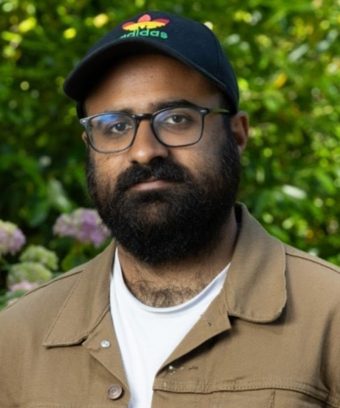
How Will Gulf States Navigate a Changing Middle East?
As someone who studies the political economy of the Gulf Cooperation Council (GCC) countries, I will be paying close attention to how the new emerging order in the Middle East takes shape. After October 7 and the overthrow of the Assad regime in Syria, the future direction of the region has completely changed. The geopolitical winners seem to be Israel and Turkey, while Iran and Kurdish forces in Syria appear to have lost significant influence and control over the past year.
But what does this mean for the GCC states? On the one hand, they are somewhat shielded from the spillover effects of these developments. They are unlikely to face an influx of refugees or domestic popular uprisings—something they were quite worried about during the Arab uprisings of 2011. Their economies are more tethered to investment and trade patterns in the Indo-Pacific and North America than those of other Middle Eastern states. Yet, they are firmly part of the region, especially with respect to security and foreign aid. After 2011, GCC states invested significantly in shaping the geopolitics of the region, often with very mixed results. Lessons were learned, and financial diplomacy is far from over—although GCC states may be more careful in their dealings, especially with growing domestic financial commitments.
With regards to Syria, one will simply have to wait and see. As Turkey is the state most closely aligned with the new government in Damascus, Gulf investments will likely be shaped by Turkish interests, giving Qatar a head start in the reconstruction of Syria. But if U.S. sanctions are lifted on Syria and Hay’at Tahrir al-Sham (HTS)—which led the rebellion—is removed from terror blacklists, this may provide an opening for Saudi Arabia and the United Arab Emirates (UAE) to flex their financial muscles. The question is whether they will want to expend more economic and political capital in a country whose future is deeply uncertain, especially when they are focused on their own ambitious national developmental plans.
The other issue to pay attention to is GCC relations with Israel. If Israel continues to occupy the Golan Heights and new areas of Syria, violates a ceasefire with Hezbollah, or fails to reach one with Hamas, it is unclear if normalization agreements and increased investment and trade could proceed. Although the UAE and Bahrain have already normalized relations with Israel, Saudi Arabia has publicly announced that normalization is off the table unless Israel recognizes a Palestinian state.
But will an emboldened and increasingly expansionist Israel agree to such a demand, especially under a Trump administration? If anyone is to compromise, it seems more likely to be the GCC. Yet one should not discount the importance of Palestine to domestic constituencies in the Gulf—something that rulers are often sensitive to.
2025 is sure to be an extremely dynamic and fluid year for the Middle East. How GCC states navigate this period will not only be a reaction to the emerging order in the region, but a central part of how it is constructed.
Rohan Advani is an IGCC dissertation fellow and a Ph.D. candidate in the Sociology Department at UC Los Angeles.

How Will New Players Affect Stability in Africa and the Middle East?
In Africa, shifting military alliances are reshaping how leaders combat internal threats. In the Middle East, a changing balance of power may intensify conflicts as new players rise to prominence. All this adds up to a profoundly uncertain 2025 for two regions already struggling to find stability.
In Africa, long-standing international military arrangements are coming to an end. In December, the government of Chad terminated a key defense cooperation agreement with France, distancing itself from its former colonial power to assert national sovereignty. As French soldiers depart from Chad, Hungarian troops are stepping in. Similarly, other African countries—including Mali, Niger, and Burkina Faso—have ended security agreements with Western nations, increasingly relying on Russia and its mercenaries. New security partnerships may alter how local governments address threats from armed groups as assistance is no longer conditioned on good governance or restraint, allowing them to employ these relationships for coup-proofing as well as combating terrorism.
At the same time, new armed groups are gaining influence in the Middle East. The relationship between Israel and Hamas, while always tense, was at least familiar. With Hamas dramatically weakened by the Israeli offensive, other, less predictable, militant organizations could fill the void. These actors—from criminal organizations to extremist movements—will present new challenges to maintaining stability.
In Syria, Hay’at Tahrir al-Sham (HTS) and the Turkey-aligned Syrian National Army (SNA) toppled the Assad regime, threatening the Kremlin’s foothold in the country as it takes on new responsibilities in Africa. Meanwhile, Israel and Turkey will act to secure their interests in the Middle East—a more intense offensive by Turkish forces and the SNA against Kurdish targets in Northern Syria is increasingly likely. In 2025, the region could be at the center of competing foreign interests and instability as shifting power dynamics shake up simmering domestic conflicts.
Where rebels and states are trying to manage fragile co-existences, the enemy—or security partner—you know is often better than the one you don’t. But familiar arrangements are giving way to new patterns of foreign influence and creating potential new adversaries, demanding governments reshape their responses to emerging challenges.
As new players come into the fold, there is a risk that forging new arrangements and redefining the red lines in existing conflicts will involve violence. Unfamiliar new partnerships and players promise to riddle 2025 with uncertainty over the security architecture of the Middle East and Africa.
Wendy Wagner is an IGCC dissertation fellow and a Ph.D. candidate in political science at UC San Diego.

Global Policy At A Glance
Global Policy At A Glance is IGCC’s blog, which brings research from our network of scholars to engaged audiences outside of academia.
Read More